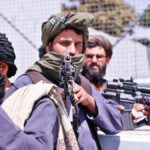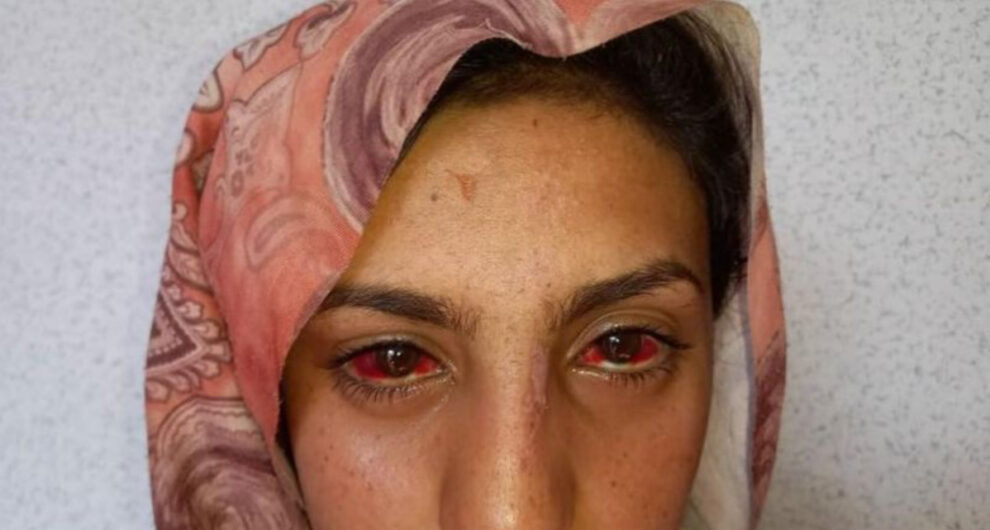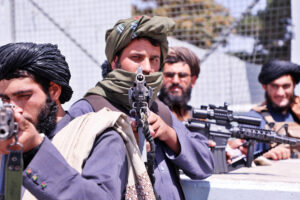90% of those killed in the October 7 earthquake in Afghanistan were women and children, the UN said. This may be due to the strict restrictions imposed by the Taliban (the organization is recognized as terrorist in Russia and is banned).
Powerful tremors were recorded in Herat province in the west of the country. About 1,300 people died in that earthquake, the UN confirmed.
To understand why so many women and children were among the dead, the BBC spoke to doctors, witnesses and activists. In their opinion, the main reason is the severe restrictions imposed by the Taliban (the organization is recognized as terrorist in Russia and is banned).
Salma*, a female doctor from Herat, was able to reach the areas most affected by the earthquake to provide first aid to the injured women. She saw firsthand how disproportionately women were among those injured and killed.
“I was in a village where members of the Taliban live. Some men refused to touch wounded or dead women,” she says.
Discrimination
The Zenda Jan area, located 40 km west of Herat, was the epicenter of the first and most destructive earthquake to rock Afghanistan in October.
Local residents told the BBC that not a single building remained standing in 20 remote mountain villages.
When the earthquake occurred, the overwhelming majority of those in these buildings were women and children.
In rural Afghanistan, women were already usually at home during the day, but when the Taliban seized power in 2021, they introduced a series of measures that banned women from most jobs and from education beyond primary school.
Because of these laws, most women were doomed to spend their lives mostly at home.
“Men worked in the fields, tended herds or went to Iran to earn money. Women were at home, doing housework and looking after the children. They were trapped under the rubble,” Salma told the BBC.

According to 23-year-old activist Mariam*, the situation was further aggravated by the fact that she saw the Taliban warning rescue workers not to touch women injured in the earthquake.
“The local men had nothing against rescuing the women, but some armed Taliban members did not allow the men to approach them,” Mariam said.
“They also banned women from these areas for the first two or three days because they didn’t want people of different genders in the same place,” she says.
Aid worker Abdul* told the BBC that militants did not allow men to touch the women’s bodies even after they died.
In addition, according to eyewitnesses, most of the dead women were buried on the same day, and their bodies were not given ablution, as is customary in Muslim customs. This ritual is usually performed by a woman, and many families simply could not find anyone who could do it.
Limitations of assistance
Activists also say restrictions imposed by the Taliban regime have prevented health workers from treating the wounded.
For example, according to Taliban rules, women are not allowed to travel unless accompanied by a male relative.
Fariba*, 21, worked as a volunteer in the emergency department of Herat’s 500-bed hospital. As soon as she heard about the earthquake, she immediately wanted to go to work.
Putting on a long outfit and a scarf, she went from home to the hospital. But the taxi drivers refused to take her there because she was not covered from head to toe in a burqa, and she was not accompanied by a man.
“The taxi drivers said that the “Ministry for the Prevention of Vice and the Promotion of Morality” would confiscate their cars and fine them 10,000 Afghanis ($130, £107) if they gave me a lift. I walked for an hour to get to the hospital,” Fariba said.
According to the BBC’s interlocutor, a few weeks before the earthquake, the Taliban began punishing drivers who agreed to give rides to unaccompanied women and women without burqas.
The BBC has learned that some Taliban representatives did visit the main hospital and called on female doctors to come to work.

According to eyewitnesses who were in hospitals after the earthquake, there were a lot of wounded women, and there were very few medical personnel who could help them. Fariba also blames the militants.
“The Taliban have banned male doctors from treating female patients. So the workload on the small group of women doctors and nurses was enormous,” she says.
Dr. Salma also says that the Taliban simply did not allow her to help one of the victims.
“I saw a woman whose head was swollen to three times its normal size – she was there with her 10-year-old son. Doctors told her to get a head scan,” says Dr. Salma. “But she and her son didn’t know where to go or what to do. There was chaos and I begged the Taliban at the hospital to let me in so I could help, but they didn’t want to.”
“Taliban” response
When the BBC approached the Taliban for comment, a spokesman rejected suggestions that the group was responsible for many of the deaths. He said the charges relate to cultural norms in Afghanistan and not to rules set by the Taliban.
“The earthquake occurred around 11 a.m.: The men were at work and the women were at home,” Taliban spokesman Zabihullah Mujahid said. “Anyone who is well versed in Afghan customs knows that almost 80-90% of women do not work and stay at home.”
Mujahid said Taliban rescue teams arrived at the site within hours, and some were flown in by helicopter. But he admits the help hasn’t reached everyone who needs it.
“Obviously this was a very large disaster that affected a large number of people. Afghanistan’s economy is not strong enough to take care of everyone’s needs at the same time, but the Islamic Emirate of Afghanistan is doing its best,” he said.
When asked whether they sent female humanitarian workers to the affected region, he did not answer.

Dr. Salma says relief agencies have been able to provide food and blankets to the victims, but there is still a lot of work to do.
Dozens of women injured in the Afghanistan earthquake are still struggling to get proper medical care two weeks later.
“Many pregnant women lost their babies and some gave birth outdoors with heavy bleeding,” adds Dr. Salma. “The young girls were in a state of shock; they did not have clean underwear or sanitary pads. They were in desperate need of medical attention.”
Source : BBC
















